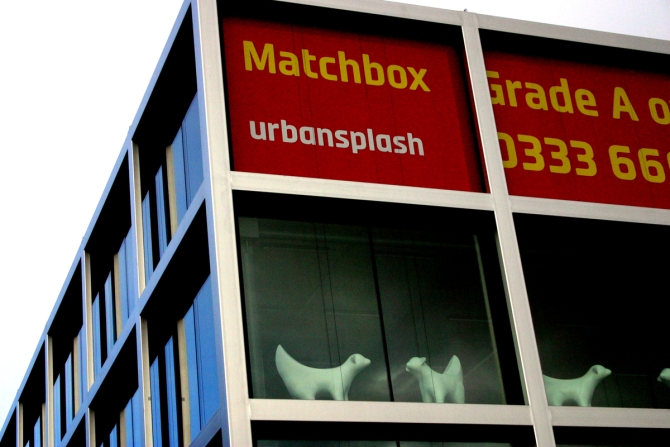Liverpool and Manchester-based developer Urban Splash has confirmed a four-way £135m debt refinancing deal with the Royal Bank of Scotland, the Co-operative Bank, HSBC and Blackstone.

The financial package is a joint venture agreement with London property group Pears and initially covers Urban Splash’s Braun portfolio of 35 properties including Fort Dunlop in Birmingham, The Matchworks office development in Liverpool and the Smithfield Buildings in Manchester.
In 2012 the company reported pre-tax losses of £9.3m and debts of £234.4m for the previous year. The Eversheds advised deal follows last year’s corporate restructuring which allowed Urban Splash to reduce its £208m debts by selling off a range of apartments to social housing landlord Places for People for £77m.
“It has been a tough five years for the industry, but I’m proud that during that time we were able to deliver some great award-winning projects,” said Urban Splash boss, Tom Bloxham. “We have also been working hard since 2011 to refinance our debt and form new joint venture relationships with strong stable financial partners.”
Describing this month’s refinancing as a “watershed moment” for his company, Bloxham added: “This deal with Pears will allow Urban Splash to continue to do what we do best — develop and manage ground-breaking and award-winning regeneration schemes across the UK — something we’ve done for more than 20 years.”
Jonathan Rose is group managing director at Pears. “We have been delighted to assist Tom and the Urban Splash team in their refinance,” he said, “and we look forward to working with them on some exciting projects.”
Established in 1993, Urban Splash is unique among developers in that it specialises in renovating neglected industrial warehouses, mills, Victorian terraced houses and other buildings. It’s a policy which has so far won the company 316 awards, 46 of which have been granted by the Royal Institute of British Architects (RIBA), the most any developer has received from the institute.
One of its latest schemes is the transformation of Sheffield’s Grade II listed Park Hill housing development. The flats were built following the Second World War in the late 1950s and early 1960s to clear slums and were branded as a “home for heroes”. Condemned in the 1980s, the listing stopped Park Hill being bulldozed and allowed it to be sold on for redevelopment.
Originally designed to house almost 900 families, Urban Splash recently announced plans for a £17m second phase which will allow it to create 182 new homes within the landmark building. Last year saw the first residents move in after the completion of the first phase with all 79 apartments now sold.
Its biggest commercial project so far has been the multi-award winning Matchworks development at Garston, Liverpool. The first building to be developed in 2001, was the former Bryant and May match factory with its iconic water tower. Six years later Urban Splash completed the former storage warehouse, Matchworks II which, together, offer 166,000sq ft of office space.
Previous Post
New Scottish Bankruptcy Peak a “Sign of Recovery”